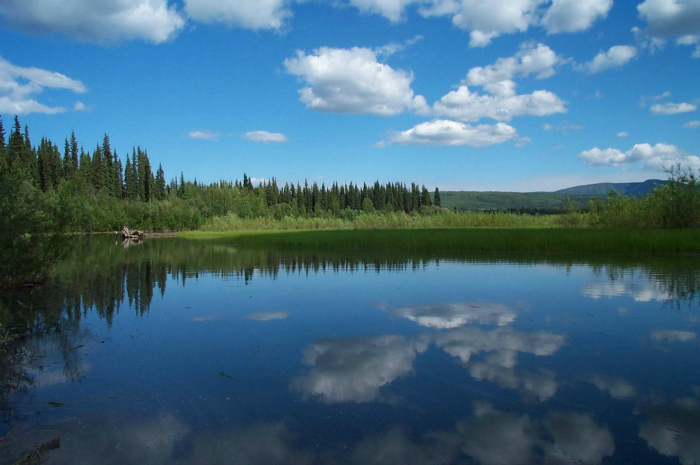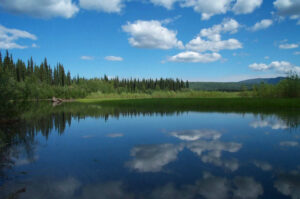
U.S. Supreme Court Hears National Parks Case
In late January, the U.S. Supreme Court heard argument in Sturgeon v. Frost, a case challenging the National Park Service’s authority to protect Alaska’s National Parks by regulating boating on rivers within parks. The controversy stems from one man’s desire to use his hovercraft on waters within the Yukon-Charley Rivers National Preserve. Hovercrafts are banned from all National Parks because they allow motorized access to places beyond where traditional motorboats can go, such as onto tundra and wetlands. Park Rangers discovered John Sturgeon and his hovercraft on the Nation River and warned him that hovercrafts are banned within the Preserve. Sturgeon sued the Park Service, challenging the hovercraft prohibition.
Trustees for Alaska has represented the National Parks Conservation Association (NPCA) as an amicus curiae, or friend of the court, on the side of the National Park Service throughout the case. NPCA was joined by 12 other conservation groups—ranging from national organizations to local, all-volunteer groups—in urging the Supreme Court to make sure Alaska’s National Parks remain protected. The outcome of this case will significantly affect the Park Service’s ability to protect Alaska’s national parks, and the fish and wildlife that rely on them.
At issue in this case is whether the National Park Service may regulate the use of navigable waters within the boundaries of federal lands established by the Alaska National Interest Lands Conservation Act (ANILCA). Sturgeon contends that the State of Alaska has the exclusive authority to regulate the river, even within the Yukon-Charley Rivers National Preserve. Both the trial court and the appeals court rejected this argument and sided with the Park Service, recognizing the Park Service’s ability to regulate activities such as boating within the parks to make sure park resources are protected.
During oral argument, the Supreme Court justices had lots of questions for all the parties. While it’s impossible to predict what the Court will do, we hope that the Court rules in a way that best protects Alaska’s national parks. We expect a decision by early summer 2016.
Read all the stories on the Yukon-Charley navigable waters cases.



